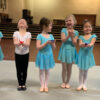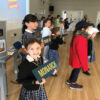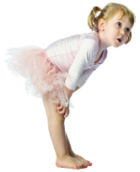
by Lynda Forster
Dance Art Studio
Cuts in  education budgets sadly impacts on most creative subjects as they are classed as ‘non-core’. Unfortunately, throughout lockdown, children from preschool to teens, suffered with their wellbeing and confidence because of lack of contact with their peers.
education budgets sadly impacts on most creative subjects as they are classed as ‘non-core’. Unfortunately, throughout lockdown, children from preschool to teens, suffered with their wellbeing and confidence because of lack of contact with their peers.
This is another reason why it’s so important to set them up early with not only a healthy diet and plenty of exercise, but with a physical activity which channels into the creative art form of human expression. This will help keep their minds healthy and balanced whilst learning a skill that will stay with them for life. Many dance classes moved online during lockdown and offered pupils a weekly lesson – this helped keep a sense of normality for the dancers and ensured they kept up with a skill, whilst keeping their social connections alive with their dance friends and teachers. I’ve heard such positive feedback from parents and older dancers who all, more than ever, appreciated the benefits and happiness that a dance class brings.
Dance as an art form is beautiful and breathtaking. There’s nothing quite like watching a skilled dancer turn and leap across the stage in time to the music, telling a story with their body.
But dance provides benefits far beyond that available to those trained in the discipline. For young children, dance and creative movement can help improve their cognitive development, building skills necessary for success later in life.
Here are ways creative movement can benefit children during the early childhood years:
Sensory awareness
Young children are highly sensory beings. They flock to things that stimulate their senses of touch, taste, sight, smell, and hearing.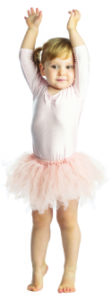
Dance and creative movement provide stimulation for three of those five senses at once: touch, sight and hearing.
By listening to the music and learning how to move in time with the beat, children begin to more finely hone their senses and learn how their bodies can work in harmony with the stimuli around them.
Development
Dance provides opportunities to hone both gross and fine motor skills.
From turning and jumping to carefully controlling the movement of hands and fingers, dance engages all aspects of a child’s physical development.
Dancing also awakens the inner creativity in all children, allowing them to hear a piece of music and decide how their body can best respond to it.
In early childhood creative movement, it’s important to have a mixture of structured directions for moving as well as plenty of time for individual exploring. This balance gets children used to bringing to life someone else’s creative vision while giving time for their own exploration.
Social skills
To have a healthy social life, children must understand and embrace their own uniqueness.
Through creative movement, they learn that not everyone interprets music the same way they do, and not everyone moves the same. This helps children see that everyone is different but no one is wrong in their individuality.
Health and fitness
Dancing is great exercise. Teaching children from a young age that frequent exercise is fun and beneficial helps build lifelong lovers of sports and movement. This leads to improved health and wellness as adults.
Language
Co-ordinated movement is essential for proper brain development, which is necessary to developing language skills.
The right side of the brain, the sensing and feeling side, functions best through creative activities. The left side is the logical thinking and planning side of the brain.
Dance allows both sides of the brain to engage, as children must follow steps and directions while also utilising their creativity and interpreting the music.
Body awareness
Young children often cannot tell the full limits of their own bodies.
Through dance, however, they learn in a controlled environment what their bodies can and cannot do and what actions they need to take to perform a desired movement.
Dance helps build co-ordination and spatial awareness, which in turn improves children’s gross motor skills.
Concentration
Remembering the next steps in a dance sequence requires a great deal of concentration. So does sitting down to participate in school work.
Using and honing concentration skills in early childhood better prepare children for the expectations of the classroom.
They learn when it’s OK to move and when they need to sit still, what types of movement are acceptable, and how to stay within their own physical boundaries.
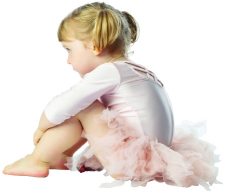 Respect
Respect
Through dance, children learn that it’s not possible to move in someone else’s space. If you do, you crash and no one gets to dance.
Learning this skill helps children understand that everyone has their own body boundaries, and they should respect the limits of those boundaries at all times.
Self-esteem
As children learn and develop new skills, their self-esteem increases.
Just like in school, play, and the rest of their lives, dancing and creative movement gives young children new skills to learn and master. This progress keeps them motivated and interested, leading to better tenacity later in life.
Why ballet?
Ballet is the focus for most dance schools, but you’ll also find tap dance, modern musical theatre, jazz and contemporary.
It is considered the absolute foundation from the very early stages where it is taught in a fun imaginative way using mime, props and stories that young children relate to. From here there is a gradual healthy build up, taking children up through the grades with a recognised exam at each level, although these are added options.
What are they learning?
• Correct technique and terminology.
• Strength and endurance.
• Timing and appreciation of music.
• Poise and posture.
Enrolling your tot into a ballet and dance class will help enrich their world around them in so many ways!
Dance Art Studio is located in the Fiveways and Preston Park area of Brighton offering preschool ballet and dance for 3-4-year-olds and graded ballet, tap, modern theatre dance and street as well as boys only tap and jazz. Exams and performance opportunities. We also hold holiday workshops. www.danceartstudio.co.uk








